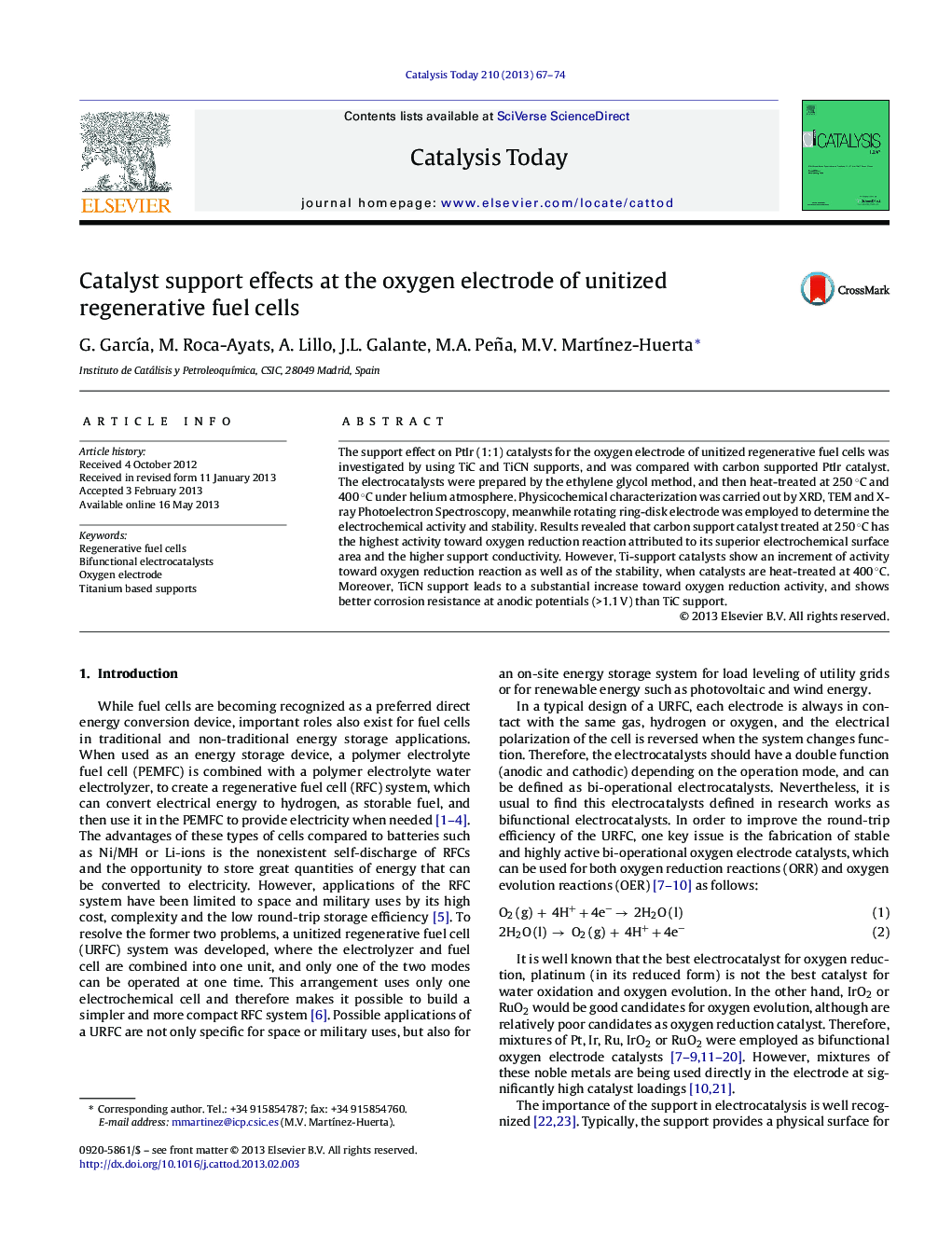| Article ID | Journal | Published Year | Pages | File Type |
|---|---|---|---|---|
| 54953 | Catalysis Today | 2013 | 8 Pages |
The support effect on PtIr (1:1) catalysts for the oxygen electrode of unitized regenerative fuel cells was investigated by using TiC and TiCN supports, and was compared with carbon supported PtIr catalyst. The electrocatalysts were prepared by the ethylene glycol method, and then heat-treated at 250 °C and 400 °C under helium atmosphere. Physicochemical characterization was carried out by XRD, TEM and X-ray Photoelectron Spectroscopy, meanwhile rotating ring-disk electrode was employed to determine the electrochemical activity and stability. Results revealed that carbon support catalyst treated at 250 °C has the highest activity toward oxygen reduction reaction attributed to its superior electrochemical surface area and the higher support conductivity. However, Ti-support catalysts show an increment of activity toward oxygen reduction reaction as well as of the stability, when catalysts are heat-treated at 400 °C. Moreover, TiCN support leads to a substantial increase toward oxygen reduction activity, and shows better corrosion resistance at anodic potentials (>1.1 V) than TiC support.
Graphical abstractFigure optionsDownload full-size imageDownload high-quality image (105 K)Download as PowerPoint slideHighlights► PtIr nanoparticles supported on TiC and TiCN have been synthesized and heat-treated at 250 °C and 400 °C in He. ► PtIr nanoparticles supported on TiCN show an increment of activity as well as of the stability, when is heat-treated at 400 °C. ► The heat treatment induces change of the electronic valence states of Ir and Ti metals, and a Pt surface enrichment.
